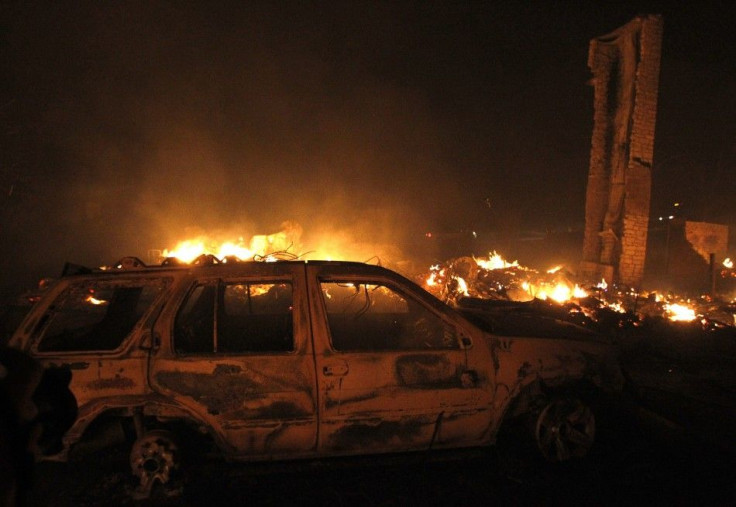Texas Fires Being Contained, But Damage Is High

Texas' fire fighters appear to be winning the battle to contain one of the largest fires since Texas started keeping records for disasters.
As armies of firefighters descend on Texas to fight back massive brush fires that have destroyed more than 1,500 homes in the past week, the sensitive work of helping the victims deal with loss is swinging into high gear, Reuters reported Tuesday.
Local schools reopened on Monday after being shuttered since the fire broke out Labor Day weekend, and every one of the 5,000 residents who were displaced by the record-breaking fire burning southeast of Austin should be able to see their property by Wednesday.
The Bastrop County Complex Fire is about 60 percent contained, Bill Paxton of the Texas Forest Service said Monday.
Making Progress, But Fight Continues
We're making progress, but we are still not out of the woods until we get significant precipitation, Paxton said.
Some 1,554 homes are confirmed to have been destroyed by the Bastrop fire -- the worst fire in terms of property loss in Texas history -- and two people are confirmed dead.
Firefighting resources across the state have been stretched in recent weeks by more than 200 fires that have flared up since the beginning of the month.
Further, the economic cost for Texas has been high. The Texas wildfires are adding economic trauma to a state that has already suffered billions of dollars in agricultural losses from an ongoing drought, CNN reported Tuesday.
The cost of the wildfires to homeowners could exceed $250 million, a record high for the state, according to Mark Hanna, spokesman for the Insurance Council of Texas.
In the last week alone, 181 fires have burned some 16,000 acres, Hanna said, calling it a catastrophic year for the state.
The Federal Reserve Bank of Dallas painted a grim portrait of the drought's impact on agriculture:
Comments from bankers noted widespread negative impacts of the dry conditions -- low or nonexistent yields for many dryland crops, stress to irrigated crops and very poor pasture conditions, the bank said in its second-quarter survey of credit conditions.
The Dallas Fed also noted that many ranchers are sending their cattle to the slaughterhouse earlier than they normally would, pressured by bone-dry pastureland.
Public Policy Analysis: This blaze of record proportion -- and the likelihood of future blazes on a probably warmer continental U.S. -- speaks for the continued deployment of federal fire mangement funds and federal research regarding the best tactics/practices to contain blazes in the climate change era.
© Copyright IBTimes 2024. All rights reserved.





















